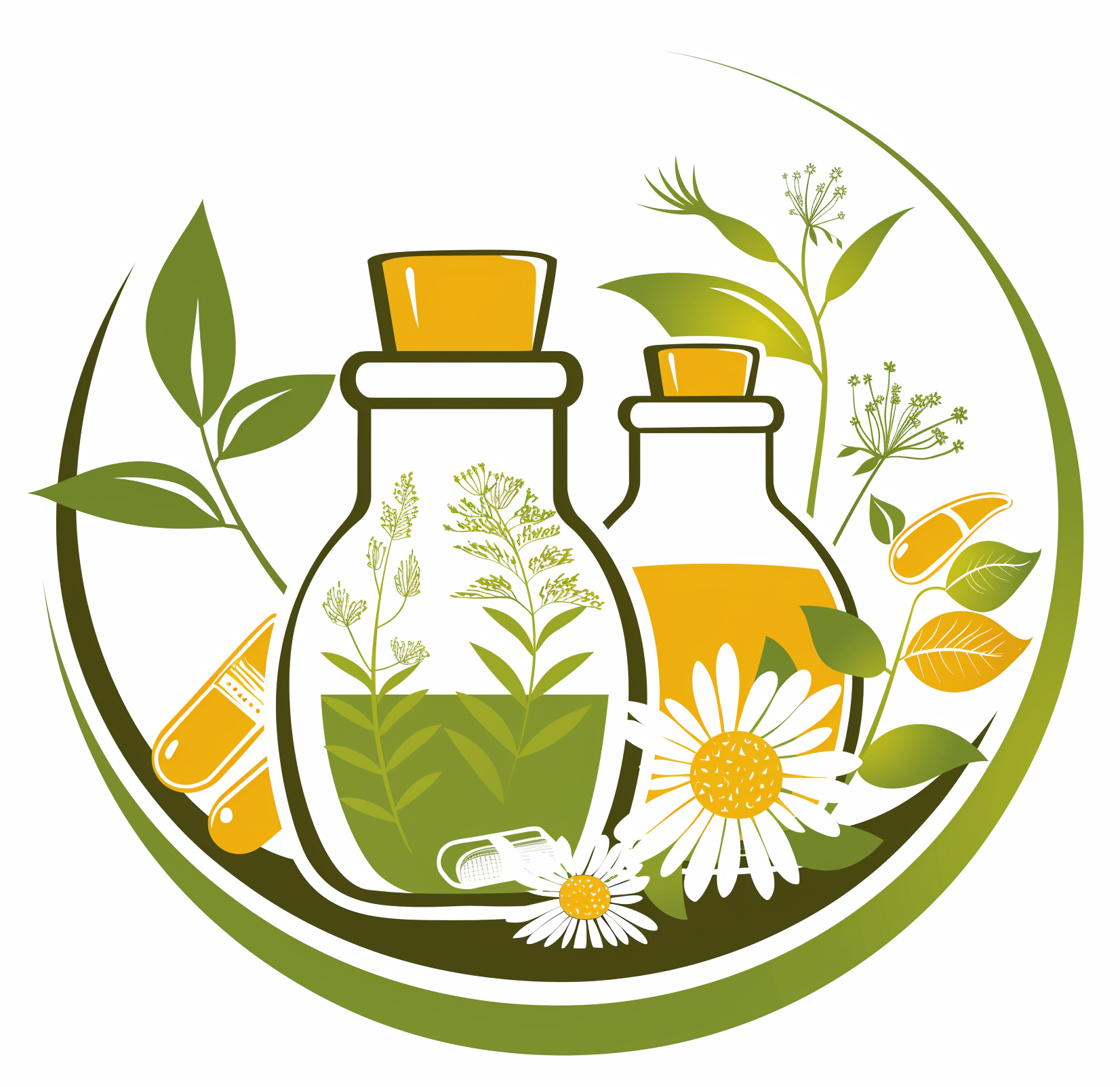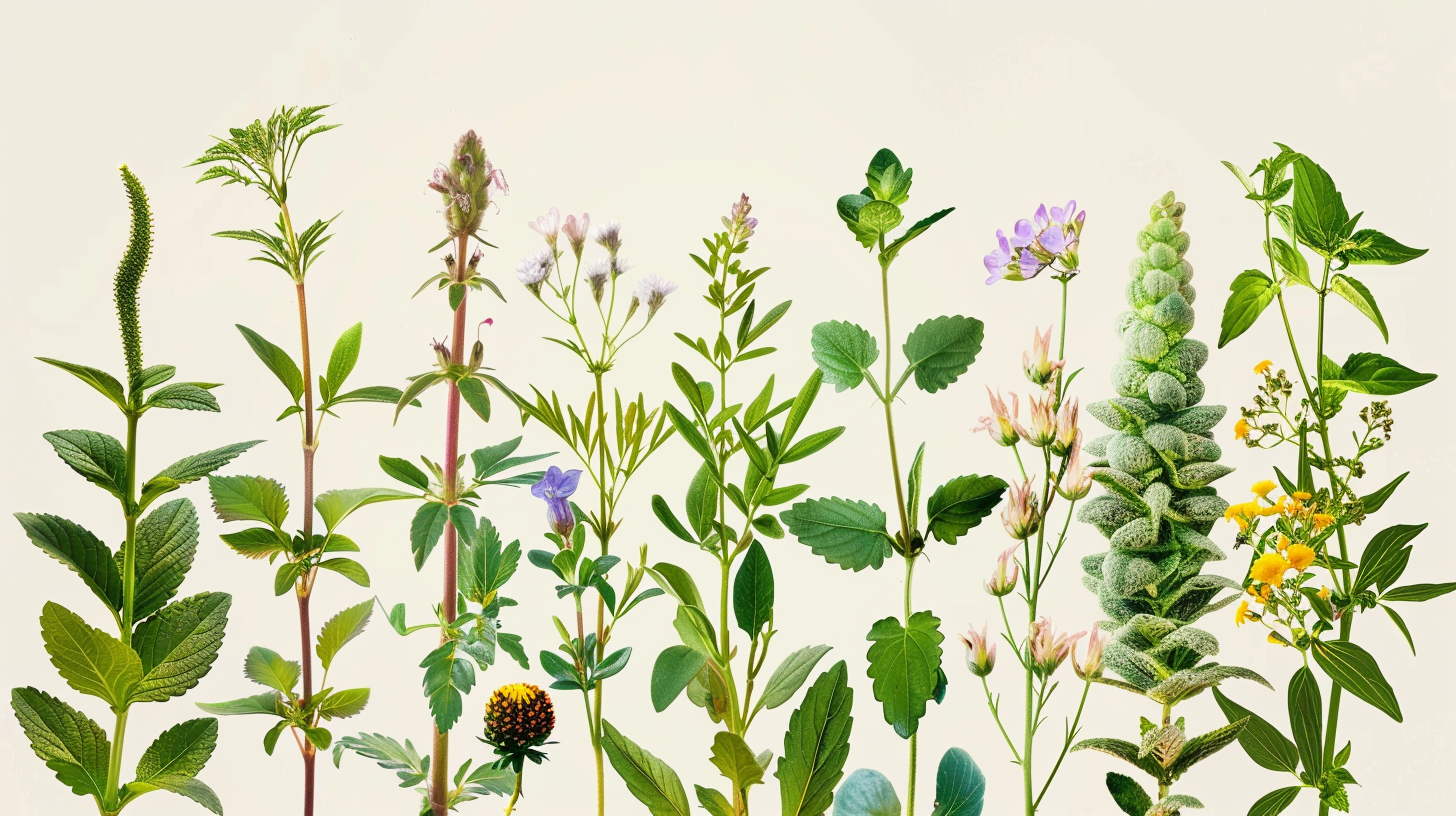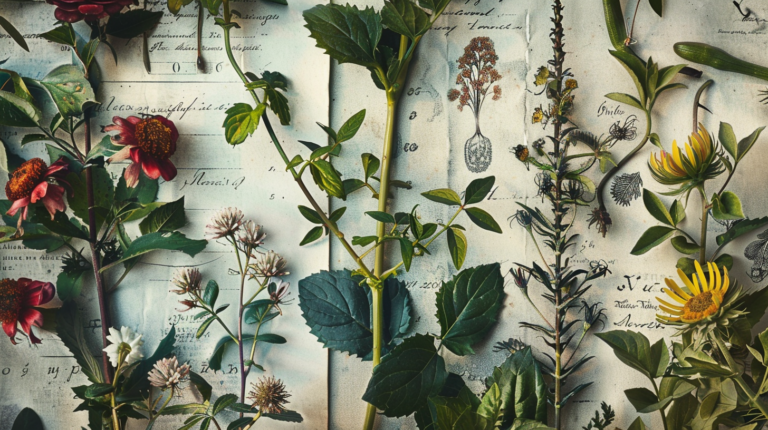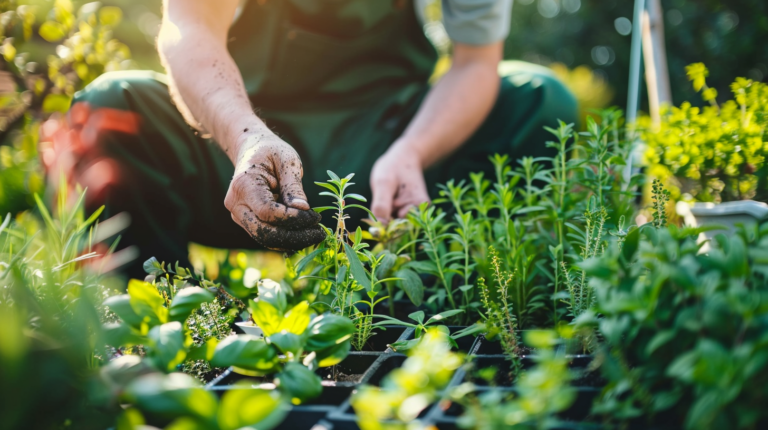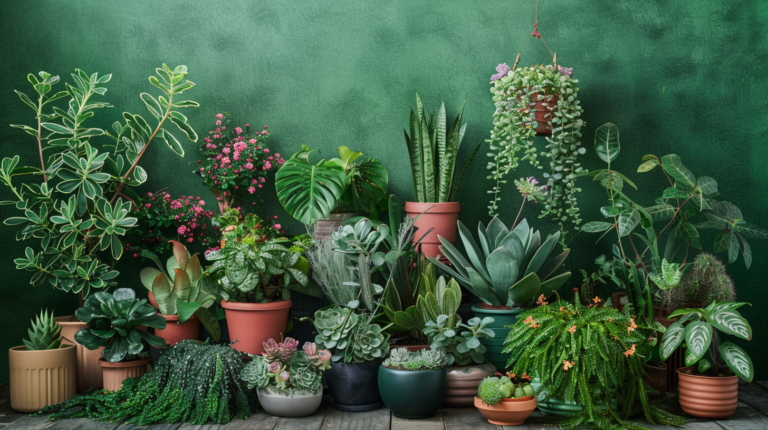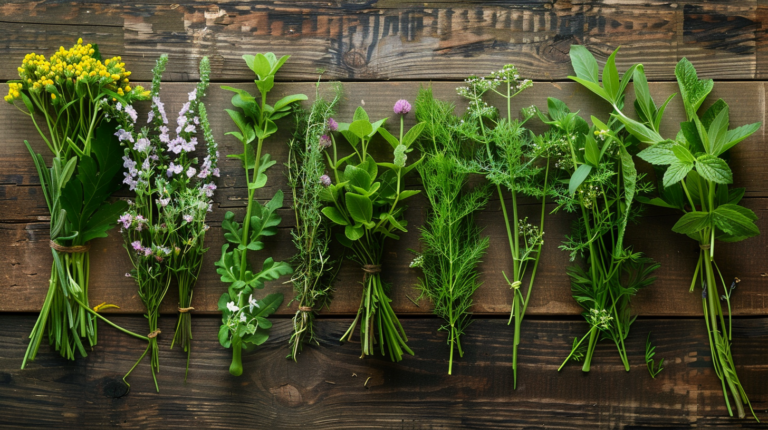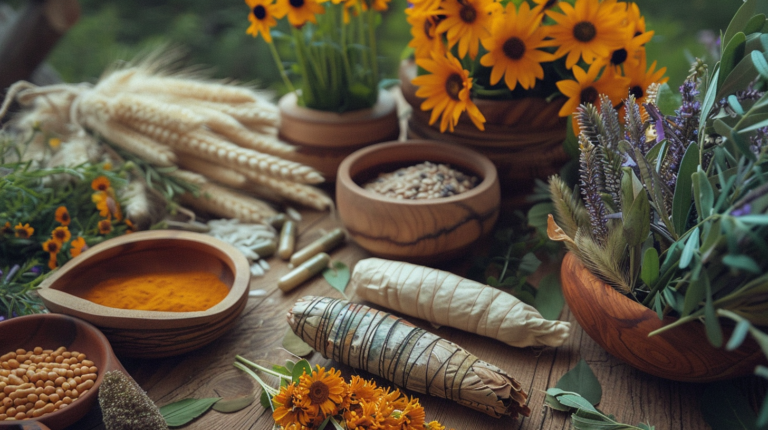Top 15 Medicinal Plants List – Benefits, Uses & How to Grow
In our fast-paced, digital world, finding ways to improve our health naturally can seem like an overwhelming task. It often feels like we’re bombarded with conflicting information on what’s truly beneficial for our well-being. Sifting through the data to uncover the truth about nature’s powerful remedies might feel like hunting for a needle in a haystack.
But what if I told you there’s a way to enhance your skin health, boost immunity, and manage common disorders without the constant worry of side effects? Throughout history, medicinal plants have been the cornerstone of traditional medicine, offering safe and effective healing properties. They possess anti-inflammatory and wound healing properties that can soothe our ailments.
Imagine having access to a comprehensive medicinal plants list, brimming with information about the best herbs and plants you can integrate into your everyday life. This list serves not only as a guide but as a gateway to discovering the immense benefits of nature’s bounty. From treating skin conditions to balancing blood pressure and more, medicinal plants provide a natural way to maintain optimal health. Let’s delve into this fascinating world and uncover the best that Mother Nature has to offer.
What Are Medicinal Plants?
Definition and Importance
Medicinal plants are truly the unsung heroes of the natural world. Defined as plants with therapeutic properties that can be used to treat various health conditions, these nature’s little wonders often grow unassumingly right in our backyards. Their importance cannot be overstated. From ancient times to modern days, they have been the backbone of traditional medicine, providing remedies for numerous ailments and promoting overall health. The vast array of species, each with its unique healing properties, makes medicinal plants an irreplaceable part of humanity’s quest for well-being.
History and Traditional Uses
Historically, the journey of medicinal plants weaves through the tapestry of civilizations. The use of these plants dates back to antiquity, where ancient Egyptians, Native Americans, and traditional Chinese medicine practitioners harnessed their powers. One of my favorite anecdotes comes from “Traditional Chinese Medicine”—no doubt, it has a magical sound, right? These ancient societies didn’t just use plants for healing; they revered them, embedding their knowledge deeply into cultural rituals and spiritual practices. Over the centuries, this knowledge was passed down, evolving and adapting, yet always aiming to heal and rejuvenate.
Top 15 Medicinal Plants You Should Know
Aloe Vera
Aloe Vera, often termed the “plant of immortality,” is not just a succulent beauty but a potent healer. By slicing through its fleshy leaves, you can reveal a gel that soothes burns, cuts, and various skin conditions. Its anti-inflammatory and antimicrobial properties are well-documented.
Chamomile
Chamomile, a star in the Asteraceae family, has been a calming agent for centuries. It makes a delightful tea that helps to reduce stress, anxiety, and even helps to alleviate symptoms of the common cold.
Echinacea
With a name reflecting its prickly nature, Echinacea enhances the immune system, making it a popular choice during cold and flu seasons. Native Americans were the first to discover its benefits. It’s a wonderful addition to any natural medicine cabinet.
Garlic
Garlic might repel vampires, but it certainly attracts health enthusiasts! Known for its ability to lower blood pressure, improve cardiovascular health, and fight infections, garlic is indeed a stinking rose worth appreciating.
Lavender
Lavender isn’t just a pretty face with a pleasant scent. This versatile herb boasts anti-inflammatory properties and is widely used in aromatherapy to calm the mind and promote restful sleep.
Lemon Balm
Lemon Balm, with its fresh lemon scent, is a gentle remedy for anxiety, indigestion, and insomnia. It was traditionally used in “Carmelite Water,” a perfume believed to cure all sorts of illnesses.
Ginger
Ginger, a renowned anti-inflammatory root, can be used to tackle nausea, arthritis, and digestive issues. I remember sipping ginger tea to ward off morning sickness, a small yet profound relief in those early pregnancy days.
Peppermint
Peppermint is often enjoyed as a refreshing tea that aids in digestion. Its active ingredient, menthol, has a cooling effect and can relieve headaches and muscle pain.
Turmeric
Turmeric, that golden spice, shines in both culinary and medicinal worlds. Containing curcumin, it offers powerful anti-inflammatory and antioxidant benefits. Try my favorite recipe: turmeric paste for a soothing anti-inflammatory potion.
Ginseng
Ginseng is a prized root in traditional Chinese medicine, celebrated for boosting energy and cognitive function. It’s like a natural elixir to rejuvenate the body.
Red Clover
Red Clover is not just a vibrant flower; it’s packed with isoflavones that help balance hormones and reduce menopausal symptoms. Historically, it was a trusted remedy for coughs and skin disorders.
Sage
Often found in your Thanksgiving stuffing, Sage is a medicinal powerhouse. It has anti-inflammatory, antioxidant, and antimicrobial properties, making it great for oral health.
Thyme
Thyme boasts potent antiseptic properties, making it a go-to for treating respiratory infections and skin conditions. A cherished ingredient in “Four Thieves Vinegar” during the plague!
Rosemary
Rosemary is a delightful herb known for improving memory and concentration. It’s also a wonderful addition to your skincare routine due to its anti-inflammatory properties.
Valerian
Valerian, dubbed the “nature’s Valium,” is a potent sedative. It’s particularly effective for treating insomnia and anxiety, acting as a mild sedative and muscle relaxant.
Benefits and Uses of Medicinal Plants
Common Health Benefits
Boosting Immunity
Medicinal plants are nature’s answer to a healthy immune system. Echinacea, for example, is widely known for its ability to strengthen the body’s defenses against pathogens.
Improving Digestion
Many medicinal plants can soothe digestive troubles. Ginger, for instance, has been used for centuries to relieve nausea, bloating, and other gastrointestinal discomforts.
Reducing Inflammation
Turmeric and its active compound, curcumin, are exceptional at reducing inflammation in the body. This can help with conditions like arthritis and general joint pain.
Relieving Stress and Anxiety
Plants like Chamomile and Valerian have calming properties that can alleviate stress and anxiety. Their gentle action makes them ideal for long-term use without the risks of dependency.
Practical Applications
Teas and Infusions
One of the simplest ways to enjoy medicinal plants is through teas and infusions. Whether it’s a chamomile tea to calm the nerves or a peppermint infusion to relieve a headache, these time-honored methods are easy and effective.
Tinctures and Extracts
Tinctures and extracts are potent forms of herbal medicine. By steeping plants in alcohol or glycerin, you can create powerful remedies that are easy to use and have a longer shelf life.
Ointments and Salves
For topical issues, ointments and salves made from medicinal plants like Aloe Vera and Calendula can be incredibly soothing and effective in treating skin conditions and wounds.
Essential Oils
Essential Oils are another fantastic way to harness the power of medicinal plants. Lavender essential oil, for instance, can be used to relieve stress, improve sleep, and even treat minor cuts and burns.
Growing Your Own Medicinal Plants
Getting Started With Your Medicinal Garden
Choosing the Right Plants for Your Region
Embarking on the journey of growing your own medicinal plants can be incredibly rewarding. It’s essential to choose plants that will thrive in your specific location. Consider the climate, soil type, and sunlight your garden receives. Plants like Aloe Vera and Lavender flourish in sunny, dry conditions, while Peppermint and Lemon Balm prefer more temperate, moist environments.
Soil, Water, and Light Requirements
Each plant has its own set of needs. For example, Ginger and Turmeric require rich, well-drained soil and plenty of water but no waterlogging. Sage and Thyme thrive in poorer, well-drained soils and need less water. Understanding each plant’s requirements will ensure a thriving medicinal garden.
Tips for Successful Cultivation
- Regular Maintenance: Consistent watering, weeding, and observation are key to successful cultivation.
- Companion Planting: Grow plants that benefit each other. For instance, planting Garlic near roses protects them from pests.
- Use Organic Methods:Minimizing chemical use encourages beneficial insects and promotes healthy plant growth.
Best Practices for Harvesting and Storing
When and How to Harvest
The timing of the harvest is crucial for maintaining the potency of your herbal medicines.
- Morning Harvest: Harvest most herbs in the morning after the dew has dried but before the heat of the sun affects their essential oils.
- Leaves and Flowers:For plants like Chamomile and Lavender, pick flowers when they are just fully open, and leaves before the plant flowers.
Proper Drying and Storage Techniques
Drying medicinal plants properly prevents mold and retains their healing properties.
- Air Drying: Hang herbs in small bundles in a well-ventilated area, away from direct sunlight. This method works well for plants with high water content, such as Basil and Sage.
- Dehydrators: For quicker drying, use a food dehydrator set to a low temperature. This is particularly effective for thick roots like Ginger and Turmeric.
Maintaining Potency and Quality
- Proper Containers: Store dried herbs in airtight containers. Opaque glass jars or tins work best to protect them from light.
- Cool, Dark Storage: Keep containers in a cool, dark place to maintain potency. Well-stored, dried herbs can last from a few months to a year.
Popular Medicinal Plant Recipes
DIY Herbal Remedies
Soothing Chamomile Tea
A classic, comforting remedy for stress and insomnia. Simply steep 1-2 teaspoons of dried Chamomile flowers per cup of boiling water for 5-10 minutes. Strain and enjoy.
Immune-Boosting Elderberry Syrup
Combine 2 cups of dried elderberries, 4 cups of water, and 1 cup of honey. Simmer until the liquid reduces by half. Strain, bottle, and store in the refrigerator. Take 1 tablespoon daily.
Lavender-Calm Bath Soak
Mix 1 cup of Epsom salts with 10 drops of Lavender essential oil. Add to your bath for a relaxing, aromatic experience.
Anti-Inflammatory Turmeric Paste
Blend ½ cup of water with ¼ cup of turmeric powder. Simmer until it forms a paste. Store in a glass jar in the refrigerator. Add a teaspoon to teas, milk, or food for anti-inflammatory benefits.
Everyday Health Boosters
Healing Herbal Salves
A powerful blend for skin conditions. Combine 1 cup of olive oil infused with Calendula, ¼ cup of beeswax, and 2 tablespoons of Tea Tree oil. Melt and mix ingredients, then pour into tins to set.
Refreshing Mint Tonic
Brew a handful of fresh Peppermint leaves in a liter of water. Add a squeeze of lemon and a teaspoon of honey for a refreshing, digestive tonic.
Energy-Enhancing Ginger Shots
Juice fresh Ginger and mix with lemon juice and a dash of cayenne pepper. Take a shot in the morning to boost energy and metabolism.
Detoxifying Green Smoothie
Blend a handful of fresh Spinach, 1 apple, ½ cucumber, and a stick of Celery with water or coconut water. This nutrient-packed smoothie supports detoxification.
Safety and Precautions
Potential Side Effects
While medicinal plants are generally safe, they can have side effects. Ginger, for example, can cause heartburn in some people. Valerian can cause dizziness or headaches if taken in large quantities. Always start with small doses and observe how your body reacts.
Dosage and Administration
Proper dosage is key to the effectiveness and safety of herbal medicines.
- Follow Guidelines: Refer to reputable sources or consult an herbalist for dosage information.
- Children and Elderly: Adjust doses for children and the elderly, generally reducing to a quarter or half the adult dosage.
Consulting with Professionals
Always consult a healthcare provider before starting any herbal regimen, especially if you are pregnant, nursing, or on medication. Natural doesn’t always mean safe for everyone. Practicing caution ensures a positive experience with medicinal plants.
